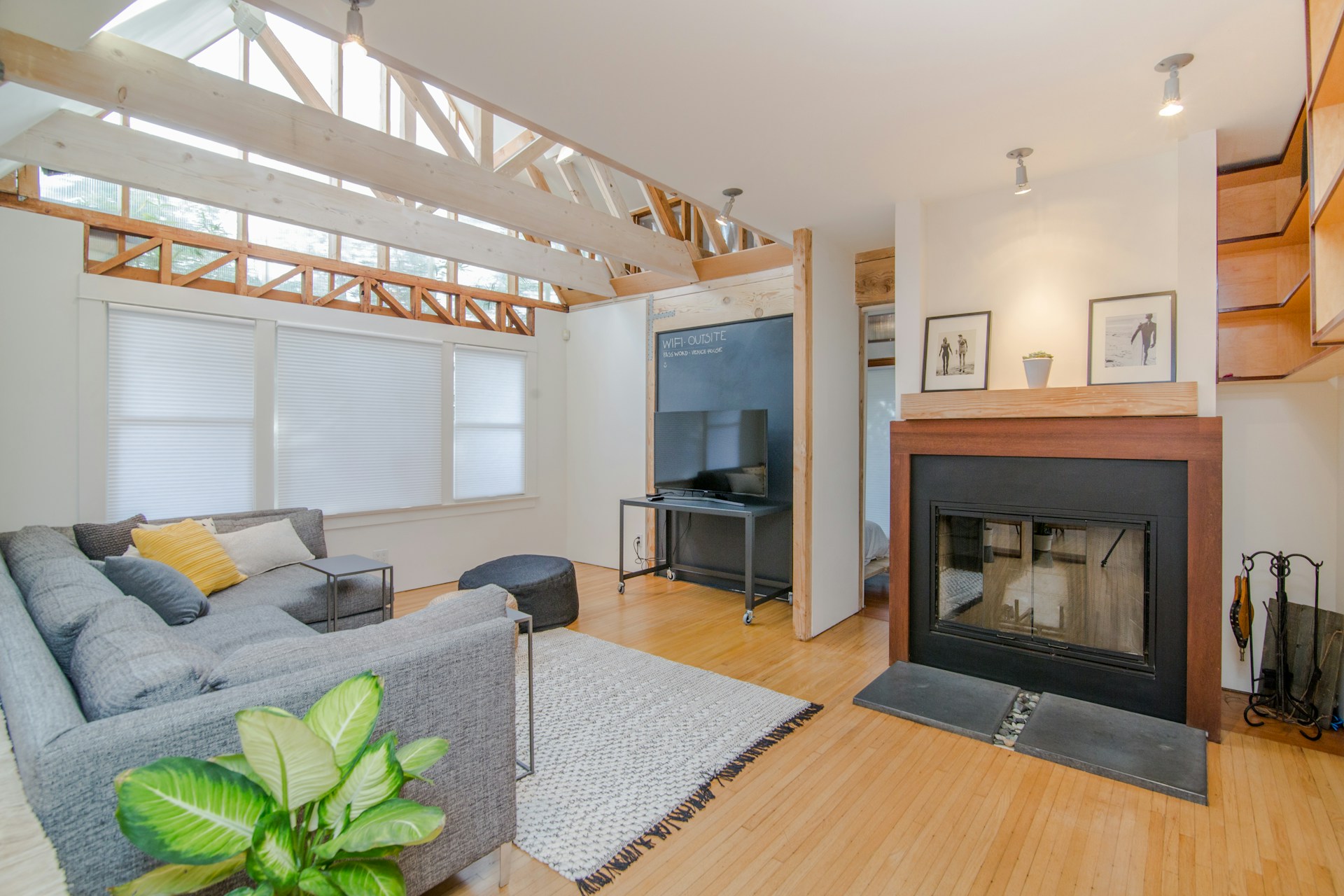Live in Luxembourg: Learn advantages, disadvantages & costs
Let yourself be surprised by what you might find if you decide to live in Luxembourg, discover what life here is really like.
If you’re thinking about what it’s like to live in Luxembourg, you’re in the right place. We’ll cover the essentials of life here, including the challenges, so you can decide if it’s the right move for you.
Luxembourg is known for its calm pace of life, the opportunities it offers, and its mix of natural and architectural beauty. All of this makes it an attractive place where many newcomers hope to build their future.
Quality of life in Luxembourg
Luxembourg offers one of the highest standards of living in Europe, along with excellent salaries and a strong sense of security. Its education and healthcare systems are accessible to everyone, and its well-connected public transport makes daily life especially convenient for workers and students.
It’s also worth noting that Luxembourg consistently ranks as one of the top European destinations for expats. According to the OECD, the country offers some of the highest salaries compared to other nations, which translates into better living conditions for its residents.

Daily life in Luxembourg, from transport and healthcare to education and leisure, balances well with the average income. We’ll highlight the key points so you can get a clearer idea of what it really means to live in Luxembourg.
1. High-quality public healthcare
Luxembourg has a universal healthcare system that is public but also includes private insurance.
How can I access public healthcare in Luxembourg?
- If you are from any EU country, you only need to present your European Health Insurance Card.
- If you are not from an EU country: First and foremost, you need to arrive in Luxembourg with health insurance that is authorized to operate in the country.
- Take your home address to the local council to apply for your National Identification Number or registration number.
- With your registration, you need to sign up with the Caisse Nationale de Santé, Luxembourg’s social security system, and then wait about three weeks to receive your health card confirming your enrollment.
How to access private insurance:
- Supplementary private insurance: You’ll need public health coverage, and getting it may require a medical exam. The cost typically ranges from around $33 to $170 per month, depending on age and the type of coverage.
- This insurance supplements public healthcare by offering private hospital rooms, higher reimbursement for copayments, access to specialist treatments, and coverage abroad.
- Comprehensive private insurance: It works much like public health insurance, covering everything you need for emergencies or routine visits to a general practitioner. It’s especially designed for newcomers to the country and costs between roughly $90 and $335.
- Documents and requirements: You’ll need to provide a valid passport, your address in Luxembourg, a residence visa if you’re not from the European Union, and a completed application form. In some cases, a medical exam may also be required.
2. Free education with financial aid from the state
Education is publicly funded and emphasizes internationalization, with instruction offered in up to three languages: English, French, and German. Public universities are the main route to higher education, though private and international institutions are also available.
The government also ensures that young people have guaranteed access to university, offering financial aid programs that allow them to focus entirely on their studies.
Here is a step-by-step guide to accessing universities in Luxembourg:
For the University of Luxembourg, which is the only public university in the country, the following is required:
- Diploma translated into Luxembourgish.
- Language certificate in French, Luxembourgish, English, or even German.
- Submit your application for the program you’re interested in through the Guichet étudiant online portal. You’ll need to upload documents such as your passport, diplomas, CV, motivation letter, and language certificates.
- Some procedures incur administrative fees, so you must take these payments into account in order for the process to move forward.
- Proof of financial solvency, your student visa, proof of address in the country, and medical insurance.
- Pay tuition: For public universities, the annual fee is capped at around $450, while private universities typically range between $10,000 and $16,800 per year.
3. Efficient, sustainable, and free transportation
To discourage car use, Luxembourg made its entire public transport system free. This network of buses, trains, and trams covers cities across the country.
- Buses: They offer the most extensive transport coverage for residents. Some routes also connect smaller towns and neighboring areas to the major cities.
- Tram: This is a great option when you want to go to the city center or the capital’s airport.
- Trains: Their function is to connect all the cities in the country and even with other nearby countries.
- Bicycle rental: Several companies offer this service, with daily rates starting around $2.25, or you can choose monthly or annual subscription plans depending on the type of bike you select.
4. Housing: Scarce for purchase
Finding a place to live in Luxembourg can be tricky because there’s limited space for new housing, so renting often makes more sense. High mortgage rates are another factor to keep in mind.
Some developers are building smaller apartments to make them more affordable, but many buyers still prefer older buildings for their spacious layouts.
According to Justarrived.lu, the highest housing prices in central Luxembourg City can reach around $12,300 per square meter, while the lowest prices are closer to $9,000 per square meter.
Renting is often a more manageable option for individuals or families. At the end of 2024, the average rent was about $32 per square meter, making a 60-square-meter apartment cost roughly $1,920 per month.
Requirements for buying: The government doesn’t impose strict rules on foreign buyers, whether they’re from the European Union or not. However, non-resident buyers may need to obtain government approval to purchase property in the country.
Requirements for renting: You’ll need to provide your passport or ID, proof of income, a security deposit, and home insurance that covers incidents like fire, theft, or damage.
The cost of this insurance typically ranges from $135 to $335 per year, though it can vary depending on the type of home, its size, location, and the coverage you choose.
5. Guaranteed security
Luxembourg is known for having one of the lowest crime rates. According to the 2023 Global Peace Index, it ranks among the most peaceful countries. The most common offenses are petty thefts, especially in areas frequented by tourists.
However, the numbers are not a major concern thanks to the actions of the authorities and the relevant complaints from citizens.
In 2024, Luxembourg ranked 15th among the safest countries in the world, according to the Global Residential Security Index. Its homicide rate stands at 0.2, compared to the European average of 2.6, according to the OECD.
6. Salaries higher than the European average
Salaries in Luxembourg are attractive for both professionals and skilled workers. The country has set a national minimum wage of around $2,950.
On average, a worker earns around $6,720 a month, or over $78,400 a year, giving them the purchasing power to cover more than just the basics of living in the country.
It’s also important to remember that a good salary reflects the quality of your skills: knowledge, experience, and proficiency in multiple languages all contribute to higher earnings.
7. Internet connection
High-speed connectivity is one of Luxembourg’s strong points, with fiber-optic networks reaching nearly every household in the country. Mobile services like 4G, 4G+, and 5G cover over 95% of the population, well above the European Union average.
Important: If you are a frequent traveler and want to stay connected without worrying about expensive roaming or looking for a new SIM at every destination, Holafly’s subscription plans are for you. With a single eSIM, enjoy internet in more than 170 countries for a fixed price and no surprises on your bill. Travel without limits and connect easily and securely! 🚀🌍

Advantages of living in Luxembourg
Living in Luxembourg comes with plenty of benefits, particularly in terms of the security and quality of daily life. Here are some of the key advantages of making this European country your home.
- Transportation, healthcare, and education are free or very inexpensive, which compensates well for the high cost of housing and food.
- Salary: This is a clear advantage, since the average income in Luxembourg is well above the minimum wage. A young worker just starting out earns around $2,950, while more experienced professionals can see average monthly salaries of about $6,720.
- Cultural diversity: Luxembourg is home to many different cultures, so socio-cultural interaction will be an enriching experience.
- Connectivity: This is a major plus for digital nomads or travelers, as Luxembourg offers plenty of internet access points, making it easy to work remotely or stay connected with family and friends.
Disadvantages of living in Luxembourg as a foreigner
Luxembourg also has some downsides. Its high standard of living can make major projects, like buying a home, more difficult to achieve.
- Buying a home: It can be challenging due to the high price per square meter in cities. Taking out a mortgage is often difficult because of steep interest rates, so both locals and residents tend to prefer renting.
- Demand in the job market: Earning a good salary requires strong professional or practical skills, supported by experience, language proficiency, and education.
- Pace of life in Luxembourg: Some cities do not tend to have a very active nightlife, and shops are usually closed on Sundays.
- The climate: The climate is another thing to consider. If you don’t enjoy cold or cloudy days, Luxembourg might not be the best fit, since chilly weather is typical across the country.
Frequently asked questions about living in Luxembourg
In Luxembourg, French and German are widely spoken, but the official language is Luxembourgish. Still, English can be a very useful language for communicating, studying, or working in the country.
The World Bank reports that Luxembourg’s population reached 666,430 in 2023. Migration has driven much of this growth, with nearly half of the residents being immigrants.
If you’re not an EU citizen, you’ll need a residence visa, health insurance, and documentation of your education, work experience, and ID. Employers may request these and help with parts of the application. Make sure to check all requirements carefully, since they can vary depending on your process.
One of the first requirements will be having enough funds to cover your living expenses, along with your high school diploma, proof of English proficiency, a residence permit, and acceptance from a university in Luxembourg. You should also seek advice from the university you want to apply to, so you can be sure of what you need.
Luxembourg City is not only the capital but also the most populous city. Following it are Esch-sur-Alzette, Differdange, and Dudelange, which, in descending order, are home to a significant portion of the country’s population.





 Language
Language 


















 No results found
No results found








